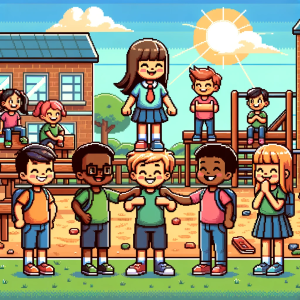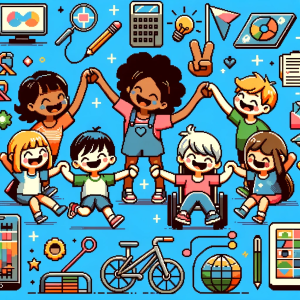
Strong Friendships: Key to Fighting Bullying
What if the simplest way to shield your teen from bullying was as easy as encouraging them to make a new friend? (Yes, I know, sometimes easier said than done).
The Study: How Friendships Affect Bullying and Mental Health
Bullying in schools worries many parents and teachers. We know that when teens are bullied, they can feel anxious, depressed, and alone. However, a recent study found that having good friends might be one of the best ways to protect against bullying and its harmful effects.
Researchers followed nearly 1,300 students around 13 years old over six months during a school year. They wanted to see how bullying, mental health problems like anxiety and depression (called “internalizing problems”), and satisfaction with friends were connected over time.
The study found something important: teens who felt happier with their friendships were less likely to be bullied later. Also, those who were bullied were more likely to feel anxious or depressed afterward. But here’s the flip side: teens who already felt anxious or depressed were more likely to become targets of bullying later on.
Why Friendships Matter
Think of friendships as a shield. When teens have friends they trust and enjoy being with, they feel more confident and supported. This can make them less appealing targets for bullies, who often pick on those who seem isolated or vulnerable.
On the other hand, teens who feel lonely or unhappy with their friendships might seem more vulnerable. Without the support of good friends, they might struggle to stand up for themselves or seek help when bullying happens.
The Cycle Between Bullying and Mental Health
The study also showed that bullying and mental health problems can create a vicious cycle. Being bullied can make teens feel anxious or depressed. Then, feeling anxious or depressed can make them more likely to be bullied again.
Imagine a teen named Alex who starts the school year feeling nervous and sad. Because Alex seems withdrawn, bullies might pick on him. This makes Alex feel even worse, and the cycle continues.
The Classroom Effect
Interestingly, the study found that the overall friendship satisfaction in a classroom mattered too. In classes where students generally felt happier with their friendships, bullying was less likely to happen. This suggests that creating a positive social environment at school can help protect all students.
The Role of Diversity
The researchers also noticed that classrooms with more students from different backgrounds had lower overall satisfaction with friendships. This might be because students are less likely to form close friendships with peers who are different from them. It’s a reminder that fostering inclusivity and cross-cultural friendships can improve the social climate for everyone.
What Can Parents and Schools Do?
Encourage Strong Friendships
Parents can play a big role by encouraging their teens to build and maintain healthy friendships. This might involve supporting their involvement in clubs, sports, or other group activities where they can meet like-minded peers.
Promote a Positive School Environment
Schools can help by creating programs that promote kindness, inclusivity, and peer support. Teachers can incorporate group projects that encourage cooperation and understanding among students.
Address Mental Health Early
If a teen is showing signs of anxiety or depression, early support can make a big difference. Parents and school mental health professionals should work together to provide resources and counseling when needed.
Breaking the Cycle
Understanding that bullying and mental health problems can feed into each other is crucial. By breaking this cycle, we can help teens feel safer and happier at school.
Consider setting up mentoring programs where older students support younger ones or peer support groups where students can share their experiences and offer advice.
Building Bridges in Diverse Classrooms
Schools can organize activities in classrooms with students from many backgrounds that celebrate diversity and encourage students to learn about each other. This can help students form friendships across different groups and improve their overall satisfaction with friends.
Final Thoughts
This study highlights a simple but powerful idea: friendships matter. By helping teens build strong, supportive relationships, we can reduce bullying and improve their mental health.
Questions to Consider
- How can we encourage teens to build stronger friendships in today’s digital age?
- What steps can schools take to create a more inclusive environment that reduces bullying?
We’d love to hear your thoughts! Share your ideas and experiences in the comments below.
Join the Educational Revolution!
Begin your adventure with This Week in School Psychology for only $5 a month or $50 annually. Be at the forefront of educational breakthroughs and mental health insights. Subscribe to become a beacon of knowledge in your community, simplifying the complex world of educational research. Why wait? Ignite your passion for learning today and enjoy exclusive savings with our annual plan!



